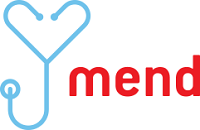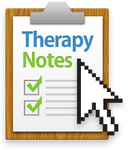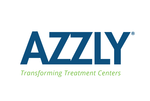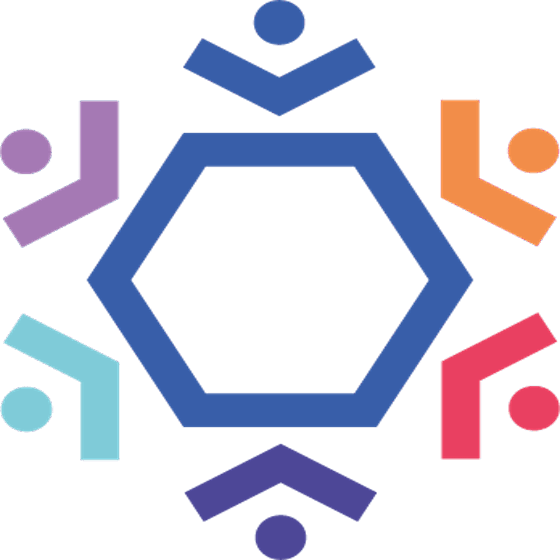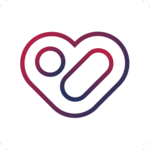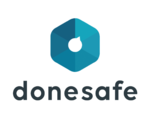Yes, most modern mental health software platforms are designed to be available from a variety of devices and operating systems. This means that the software is compatible with any laptop, tablet, or smartphone running Windows, Mac, iOS, or Android. This provides greater flexibility and convenience for both therapists and clients, as the platform can be used from anywhere with an internet connection.
List of 20 Best Mental Health Software
Valant is a EHR software specifically created for mental health providers to enhance clinical processes and streamline practice operations. It offers a comprehensive range of tools for documentation, billing, and patient engagement, enabling provider...Read More Valant
TheraPlatform is a all-in-one solution for therapists. This comprehensive practice management software simplifies scheduling and billing for a streamlined experience. With secure and HIPAA-compliant video conferencing, TheraPlatform enables therapist...Read More TheraPlatform
Mend is a patient engagement solution designed to simplify and optimize your patient intake and communication procedures. Our platform offers fully customizable workflows for in-person and virtual care, along with secure telehealth capabilities that...Read More Mend
Medesk is a practice management software designed to streamline administrative tasks and elevate patient care in medical practices. Our user-friendly and secure platform offers a range of features including appointment scheduling, electronic medical...Read More Medesk
Practice Better is a practice management and EHR solution designed specifically for health and wellness practitioners. With global recognition, it streamlines administrative tasks and enhances client satisfaction. This software offers unique features...Read More Practice Better
TheraNest is a online platform designed specifically for mental health practitioners. This secure and HIPAA-compliant solution is perfect for solo therapists, large practices, and non-profit organizations. Streamline administrative tasks and improve...Read More TheraNest
TherapyNotes - the essential solution for mental health professionals. Designed to simplify practice management, from scheduling and documentation to billing, TherapyNotes offers a user-friendly interface for increased productivity and patient-focuse...Read More TherapyNotes
InSync EMR is a highly-rated web-based program that streamlines medical practices, improves patient care, and streamlines accounting processes. It has a proven track record of increasing efficiency and productivity for healthcare providers. With a fo...Read More InSync EMR
Jane App is a practice management software designed to enhance the daily operations of any healthcare practitioner. Our user-friendly platform handles scheduling, billing, and client communication, allowing professionals to focus on delivering top-qu...Read More Jane App
Therasoft Online is a practice management software designed for mental health professionals. This comprehensive solution streamlines scheduling, billing, and clinical documentation, allowing therapists to focus on their patients well-being. With Ther...Read More Therasoft Online
AZZLY, the premier web-based EHR system tailored for behavioral health and addiction treatment centers. This cutting-edge platform streamlines patient management, clinical documentation, and billing tasks, providing a secure and hassle-free experienc...Read More AZZLY
CureMD is a health IT software that transforms the administrative and clinical processes of healthcare facilities. Its advanced technology streamlines operations, enhances productivity and enhances patient care. With its robust features and integrate...Read More CureMD
Remedly is a medical spa software that sets itself apart in the healthcare landscape. Its unparalleled features like promotional tools, inventory tracking, package customization, patient flow management, and group scheduling optimize processes for op...Read More Remedly
Raintree Practice Manager - the leading EMR solution for physical, occupational, and speech therapy practices. This all-in-one platform is designed to optimize clinic operations and improve clinical efficiency, allowing practitioners to focus on prov...Read More Raintree Practice Manager
Immersively Care is a video communication solution for enhancing your interactions. Our advanced technology accurately measures emotions such as attention, interest, stress, pain, and fear, allowing you to connect more deeply and communicate more eff...Read More Immersively Care
BlockerX, your ultimate solution for a secure and efficient digital experience. Say goodbye to adult content, gambling, gaming, and dating apps, while also managing your social media usage. Stay focused and maintain a healthier online routine with th...Read More BlockerX
Cerner is a EMR software designed for small and medium-sized businesses. It simplifies payment account management and improves service quality by providing quick access to operational and clinical data as needed. This user-friendly solution gathers e...Read More Cerner
75Health, the user-friendly EHR and EMR software that simplifies electronic health record management. Our cloud-based solution is ideal for doctors, clinics, hospitals, and other healthcare professionals, allowing easy access and updates to patient r...Read More 75Health
OpenEMR is open-source software designed for medical billing and EMR (Electronic Medical Record) purposes. It streamlines billing processes by enabling direct entry of billing information and allows for easy management of facility NPI and CLIA number...Read More OpenEMR
Donesafe is a cloud-based platform for managing HSEQ (health, safety, environment, quality) in any workplace. With a user-friendly interface and over 30 customizable apps, Donesafe provides complete solutions for all your HSEQ requirements. From ensu...Read More Donesafe
Learn More About Mental Health Software
- What Is Mental Health Software?
- What Are The Recent Trends In Mental Health Software?
- Benefits Of Using Mental Health Software
- Important Factors To Consider While Purchasing Mental Health Software?
- What Are The Key Features To Look For In Mental Health Software?
- Why Do Businesses Need Mental Health Software?
- How Much Time Is Required To Implement Mental Health Software?
- What Is The Level Of Customization Available In Mental Health Software?
- Which Industries Can Benefit The Most From Mental Health Software?
- Conclusion
What Is Mental Health Software?
Mental Health Software is a technological solution developed to help mental health professionals manage their patients and their entire practice. It is a digital platform that offers a variety of features and tools for streamlining administrative processes, improving communication, and improving patient outcomes. One of the primary advantages of employing mental health software is the ability to automate typical operations such as appointment scheduling, invoicing, and insurance claims.
This not only saves time and effort, but also reduces the possibility of human error, resulting in precision and efficiency. Furthermore, mental health software provides a safe and centralized platform for storing patient data, such as personal information, medical history, and treatment plans. This allows healthcare providers to easily access and share data, boosting teamwork and continuity of care.
Beyond administrative responsibilities, mental health software provides a variety of clinical tools, including evaluation forms, treatment plans, and progress notes. These elements not only aid in monitoring patients' progress, but also provide evidence-based treatment options that improve overall treatment outcomes. Furthermore, some mental health software includes telehealth features, which enable virtual sessions and increase accessibility for patients in remote or rural places.
This is especially advantageous in today's digital age, as the need for virtual mental health treatments is increasing. When shopping for mental health software, search for a solution that is HIPAA compliant to preserve patient privacy and confidentiality. It is also critical to select software that is user-friendly, adaptable, and compatible with other systems in the practice.
What Are The Recent Trends In Mental Health Software?
Mental health software has grown in popularity in recent years, providing a diverse set of tools and resources to help mental health professionals and their clients. As technology advances and mental health becomes a more openly addressed topic, there is a rising demand for high-quality mental health software.
In this buyer's guide, we'll look at recent trends in mental health software and what factors to consider when making a purchase for your clinic.
1. The Adoption Of Electronic Health Records (EHR): One of the most important advances in mental health software is the use of electronic health records (EHR). These systems enable practitioners to securely and efficiently store and organize patient information, such as demographics, medical history, treatment plans, and progress notes. EHRs are becoming increasingly popular since they not only reduce time and space when compared to traditional paper records, but also provide greater accessibility and data security.
2. Teletherapy & Telehealth Services: Another key trend in mental health software is the integration of teletherapy and telehealth services. With the advent of remote employment and virtual healthcare, many mental health practitioners are using teletherapy platforms to give remote counseling services to their clients. These solutions provide secure video conferencing, texting, and scheduling capabilities, allowing therapists to communicate with clients from any location in the world.
3. Improved Integration And Interoperability: As mental health software evolves and expands, integration and interoperability are critical aspects for customers to consider. Many mental health software solutions now integrate seamlessly with other tools, including EHRs, billing software, and scheduling platforms. This integration not only saves time and eliminates errors, but it also encourages a more efficient workflow.
4. Emphasis On Data Analysis And Reporting: Data analytics and reporting have become more important in mental health applications. These tools allow practitioners to examine their clients' development over time, track treatment outcomes, and uncover patterns to inform their practice. This data-driven approach can result in more effective and tailored treatment regimens for clients.
5. Mobile Apps To Enhance Client Engagement: Mobile apps have also become a popular feature in mental health software. These apps enable therapists to engage with their clients remotely and provide additional resources and assistance outside of treatment sessions. Some apps also contain elements like mood tracking, journaling, and mindfulness activities, which encourage proactive self-care and participation in therapy.
Benefits Of Using Mental Health Software
Mental health software has grown in popularity in recent years as more healthcare professionals and organizations see the value of employing technology to improve mental health services.
This buyer's guide will go over the unique benefits of adopting mental health software, allowing you to make an informed choice while looking for the best option for your needs.
1. Efficient Patient Management: One of the primary advantages of employing mental health software is the capacity to automate patient management. With electronic health records (EHR) and patient scheduling tools, healthcare practitioners can conveniently access and update patient information, track appointments, and improve communication with other doctors involved in a patient's care. This saves time while also improving the overall quality and efficiency of patient treatment.
2. Simplified Billing And Claims Processing: Many mental health software packages include functionality for invoicing and claims handling. This removes the need for manual paperwork and decreases the likelihood of errors. Mental health software enhances revenue cycle management for healthcare providers by automating the billing process and allowing them to securely store patient insurance information, produce claims, and track payments.
3. Better Accessibility For Patients: In an era of increasing teletherapy and distant mental health treatments, the use of mental health software improves patient accessibility. Many software systems include telehealth features, which enable patients to receive counseling and therapy from the comfort of their own homes. This is especially useful for folks who encounter transportation issues or have limited mobility.
4. Improved Communication And Collaboration: Effective communication and collaboration are critical for providing quality mental health care. Mental health software enables secure and smooth communication between healthcare providers and patients. Additionally, some solutions have collaboration features, which allow several clinicians to collaborate on a patient's treatment plan, resulting in better outcomes.
5. Data Management And Analysis: Mental health software also includes powerful data management and analytics features. Providers may efficiently collect, store, and analyze patient data to track progress, detect patterns, and assess results. These information can help clinicians make more educated judgments and improve their treatment plans.
6. Customizable Treatment Plans: Every patient's mental health requirements are unique, and with mental health software, treatment regimens may be tailored to the individual. Providers can build and adapt treatment programs based on a patient's individual needs, monitor progress, and make changes as needed. This tailored strategy can improve patient results and happiness.
Important Factors To Consider While Purchasing Mental Health Software?
When it comes to choosing mental health software for your clinic or business, there are numerous key considerations to consider. Making the appropriate decision can significantly improve the efficiency and efficacy of your mental health services.
Here are some crucial factors to consider while assessing mental health software options:
1. Evaluation And Treatment Tools: The software should include a comprehensive collection of evaluation and treatment tools tailored exclusively for mental health professionals. This can comprise intake forms, progress notes, treatment plans, and outcome measurements. These tools should be adaptable and simple to use for both practitioners and clients.
2. Electronic Medical Records (EMR) Integration: Make sure that the mental health software interfaces seamlessly with your current electronic medical record system or has its own EMR capabilities. This will help to streamline documentation and reduce the number of errors.
3. Security And Compliance: The software must have strong security procedures in place to protect sensitive patient information. Furthermore, it should adhere to all applicable privacy laws and regulations, such as HIPAA in the United States.
4. Teletherapy Capabilities: With the rise of teletherapy, it is critical to select software that has secure and dependable video conferencing capabilities. This enables you to offer virtual treatment sessions to your clients, boosting accessibility and convenience.
5. Billing And Payment Processing: Look for software that includes integrated billing and payment options. This will help to streamline your administrative responsibilities while also ensuring timely and accurate payment for services delivered.
6. User-Friendly Interface: The software's interface should be simple to use and understand. This will shorten the learning curve and increase efficiency in utilizing the software.
7. Customer Support: Look for a software company that provides dependable and prompt customer service. This ensures that any concerns or questions that emerge are promptly addressed.
What Are The Key Features To Look For In Mental Health Software?
When it comes to selecting the best mental health software, there are a few crucial features to consider to ensure a profitable investment. These characteristics can significantly improve the functionality, usability, and efficacy of the program, thereby affecting the quality of care delivered to clients.
As you consider your alternatives, here are the top things to look for in mental health software.
1. Electronic Health Records (EHR) Management: A comprehensive EHR system is required to successfully manage client information, treatment plans, and progress notes. Look for software that offers customized templates, safe storage, and easy access to customer details.
2. Scheduling And Appointment Management: An excellent scheduling tool can save time and reduce the likelihood of errors in appointment management. Automated reminders, appointment confirmations, and schedule optimization are all features that can help your clinic run more efficiently.
3. Billing And Payment Processing: Managing billing and payments can be time-consuming, but with the correct tools, the process can be made more efficient. Look for software that integrates billing and payment processes, including insurance claim submissions and personalized invoices.
4. Telehealth Capabilities: In today's digital environment, having software that supports telehealth is critical. This tool enables remote consultations and virtual therapy sessions, hence boosting client accessibility and broadening your provider reach.
5. Assessment Tools: Software that includes assessment tools can be quite useful for acquiring critical information regarding a client's mental health status. Look for software that provides a variety of evaluation choices, including diagnostic interviews, symptom checklists, and outcome measurements.
6. Treatment Planning: Treatment planning is an important stage in providing successful care to clients. Look for software that allows you to create customized treatment plans, track progress, and set goals to help lead and monitor the client's recovery path.
7. Data Security And HIPAA Compliance: Mental health software handles sensitive client information, thus it is critical to select software that prioritizes data security and HIPAA compliance. Look for software that has encryption, user authentication, and other security features to protect client data.
When choosing mental health software, these crucial qualities should be at the top of your priority list. Each element contributes significantly to optimizing operations, increasing productivity, and ultimately offering high-quality care to clients. Keep these qualities in mind when you research alternative possibilities and select the software that best suits your practice and clientele.
Why Do Businesses Need Mental Health Software?
Mental health software is an important and useful tool for businesses of all sizes and sectors. With a growing emphasis on mental health and well-being in the workplace, there is a greater need than ever for effective solutions to help employees' mental well-being. One of the key reasons organizations want mental health software is to foster a healthy workplace environment.
Businesses can foster a culture that values its employees' well-being by providing them with access to mental health resources and support. This, in turn, can boost staff morale, productivity, and retention. Another important feature of mental health software is its capacity to track and monitor employee information. This data can assist firms in identifying underlying issues and patterns within their workforce, allowing them to take proactive steps to address any potential problems before they worsen.
Additionally, mental health software can help firms comply with legal and ethical requirements. With various rules and regulations in place to safeguard employees' mental health, such as the Americans with Disabilities Act (ADA), businesses must have the tools and resources to meet their employees' mental health requirements. Furthermore, mental health software provides a variety of features and tools aimed at improving mental health, including self-care resources and virtual therapy sessions.
Businesses may improve their employees' mental health, reduce stress, and increase overall job satisfaction by providing them with the correct tools. Investing in mental health software not only demonstrates a company's dedication to its employees' well-being, but it also provides financial rewards. It can help to reduce the expenses of absenteeism, presenteeism, and turnover caused by mental health disorders.
How Much Time Is Required To Implement Mental Health Software?
The time required to implement Mental Health Software varies based on various aspects, including the software's complexity, the size of the organization, and the team's preparation. In general, it can take anywhere from a few weeks to several months to fully implement and get the program up and operating. The first step in deploying Mental Health Software is to choose the appropriate software for your organization's requirements.
This procedure can take anywhere from a few days to a few weeks, depending on how many software solutions you're looking at and how long it takes to assess each one. Once the software has been chosen, the following step is to configure the system for your firm. This may include modifying settings, entering client and patient information, and integrating the program with your existing systems.
This procedure can take a few weeks or months, depending on the software's complexity and the size of your firm. Training is an important part of deploying Mental Health Software, and it can last anywhere from a few days to a few weeks depending on the size of your team and their expertise with technology. To reap the most benefits from the program, all team members must be fully trained and familiar with it.
The final stage in deploying Mental Health Software is testing the system and making any necessary changes or revisions. This process can take anywhere from a few days to a few weeks, depending on the amount of defects discovered during testing and the software's complexity. Overall, implementing Mental Health Software might take anything from a few weeks to a few months, but the advantages greatly surpass the time commitment. To ensure a seamless and successful implementation, a well-thought-out implementation plan is required, as is the participation of all team members.
What Is The Level Of Customization Available In Mental Health Software?
Mental health software has become an essential tool for healthcare providers to manage patient data, treatment plans, and communications. When contemplating purchasing mental health software, one critical element to consider is the level of customization available. Customization allows the program to be adjusted to the healthcare provider's individual needs and preferences, resulting in a more efficient and effective tool.
Here's all you need to know about the level of customization accessible with mental health software.
1. Customizable Forms And Templates: One important element of mental health software is the ability to generate and edit patient forms and templates. This enables the healthcare provider to create forms that are tailored to their own practices and treatment approaches. Customizable templates can include intake forms, treatment plans, and progress notes, among other things.
2. Personalized Workflows: The software's workflows can also be customized. This means that healthcare providers can tailor the program to their chosen sequence of actions for managing patient care. This can save time and improve efficiency by removing unnecessary or redundant stages.
3. Customizable Dashboards And Reporting: The level of customisation offered in mental health software enables individualized dashboards and reporting. Providers can change the information displayed on their dashboard and how their reports are generated. This can provide useful insights and data to aid decision-making.
4. Integration With Existing Systems: Many mental health software packages allow for integration with other systems, such as electronic health records (EHRs) or billing software. This enables for a more seamless transition while minimizing disturbances to existing operations. It also allows for further customisation by integrating data from other systems.
5. Accessibility And User Preferences: The amount of customization also includes the software's accessibility and user preferences. Providers can customize the user interface, such as text size and color scheme, to make the product easier to access and use.
Which Industries Can Benefit The Most From Mental Health Software?
Mental health is an important component of total well-being, and the demand for competent mental health care and support has never been higher. With the rise of mental health concerns and the increasing availability of technological solutions, mental health software has become an invaluable resource for both individuals and companies. While this software can aid a variety of sectors, some will gain the most benefits.
Let's look at which industries will profit the most from mental health software:
1. Healthcare Industry: One of the most important businesses that can profit greatly from mental health software is the healthcare industry. Mental health software can boost the efficiency and effectiveness of mental health therapy by reducing administrative duties, enabling communication among healthcare providers, and tracking patient progress. This software can also help in early detection and prevention of mental health concerns, resulting in better patient outcomes.
2. Education Industry: Students' mental health difficulties, such as anxiety and depression, are increasing, and schools are struggling to provide enough help. Mental health software can help educational institutions monitor students' mental health, provide timely interventions, and connect students to relevant resources. It can also help school counselors manage their caseloads and collaborate with other healthcare providers to ensure students receive comprehensive care.
3. Corporate Industry: Mental health software can also be quite beneficial in the workplace. Work-related stress, burnout, and other mental health concerns can have an impact on employee well-being and productivity. Mental health software can help firms assess their employees' mental health, provide focused interventions and resources, and track progress. It can help foster a culture of mental health in the workplace.
4. Government Entities: Mental health software can help government entities that provide mental health services to the general public. This software can assist these agencies in managing their caseloads, tracking data, and improving service delivery to individuals with mental health needs. It can also help uncover patterns, gaps in services, and opportunities for improvement.
5. Non-Profit Organizations: Nonprofit organizations providing mental health services are critical for people who cannot afford private treatment. However, maintaining the administrative activities and resources required to provide these services can be burdensome. Mental health software can help organizations streamline operations, increase productivity, and improve data collection, resulting in better treatment delivery.
Conclusion
To summarize, selecting the appropriate mental health software is critical for any company or practice seeking to successfully manage their customers' mental health information and offer quality service. Buyers can make an informed decision that matches their individual objectives and goals by taking into account elements such as software type (web-based or on-premise), features and functionality, integration capabilities, support and training options, and price.
Buyers should thoroughly investigate and demo numerous software options to ensure they select the greatest fit for their firm. Furthermore, involving key stakeholders and soliciting input from current users can yield useful insights into the software's effectiveness and usability. Once established, effective utilization and continued training are critical to reaping the full benefits of mental health software.
It is also critical to examine the software's performance on a regular basis and make adjustments as needed to ensure that it meets expectations and addresses any new demands. Overall, investing in the correct mental health software can help an organization provide better care and enhance patient outcomes. Buyers may make the best decision for their organization's mental health management by carefully analyzing all features of the software and incorporating feedback from all stakeholders.
Mental Health Software FAQ's
Can Mental Health Software Be Accessed Across Multiple Devices And Platforms?
Is Mental Health Software Future-Proof And Adaptable To Emerging Technologies Like AI, Blockchain Or IoT?
Yes, Mental Health Software is intended to be future-proof and adaptable to new technologies such as AI, blockchain, and IoT. These technologies can improve the functioning and effectiveness of mental health software by allowing for more personalized and data-driven treatment alternatives. With regular upgrades and developments, mental health software can adapt and incorporate new technology to better serve clients and mental health practitioners.
Is There A Free Trial Offered To Assess Mental Health Software Before Committing?
Yes, many mental health software vendors provide a free trial period so that users can evaluate the product's features and usability before making a purchase decision. This enables doctors and organizations to evaluate the software and assess whether it satisfies their specific needs and expectations.
Some free trials may be time- or feature-limited, so check the terms and conditions carefully before joining up. It is critical to thoroughly assess the software during the trial time in order to make an informed judgment about its fit for your practice.
Does Mental Health Software Offer Data Security Features And Meet Regulatory Compliance Standards?
Yes, most mental health software solutions include strong data security safeguards to safeguard sensitive patient information. These may include data encryption, access limits, and regular backups. Furthermore, these software alternatives are intended to meet legal compliance criteria such as HIPAA, which safeguard patient privacy and confidentiality. It is critical to investigate and select credible mental health software that stresses data protection and compliance.
Can Mental Health Software Integrate Seamlessly With Existing Tools And Platforms?
Yes, mental health software is meant to work easily alongside existing tools and platforms. Mental health software may readily interact with EHR systems, video conferencing platforms, and billing software to enable a smooth workflow for mental health professionals. This removes the need for redundant data entry, resulting in more efficient data management and communication between systems.



